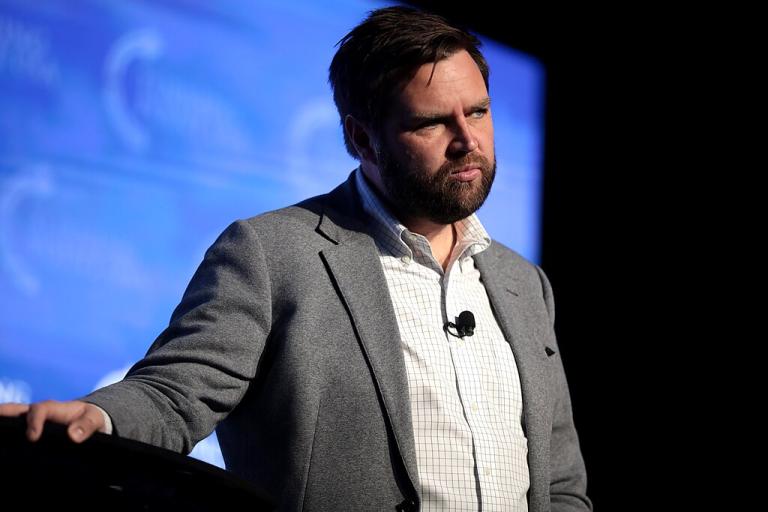
No sooner had I written about J. D. Vance, posted yesterday, that I read a piece in the Wall Street Journal entitled J.D. Vance and the Rise of ‘Postliberalism.’ with the deck, “Trump’s vice-presidential nominee brings philosophical heft to Trump’s attack on the progressive elites and the ‘deep state.’” It was written by Graedon H. Zorzi, a professor at Patrick Henry College (after my time there). He gives a very cogent explanation of “Postliberalism.”
In the article (which is behind a paywall), Zorzi quotes Trump consiglieri Steve Bannon as saying Vance is “the St. Paul to Trump’s Jesus—the zealous convert who spreads the gospel of Trumpism further than Trump himself.” Using less problematic language, Zorzi describes Vance as one of the intellectuals–such as Patrick Deneen, Adrian Vermeule, Charles Taylor, and Alasdair MacIntyre–who have been articulating a new political theory that Trump has embodied.
Here are some features of “postliberalism”:
Its clearest articulation is in Mr. Deneen’s 2023 book, “Regime Change,” which calls for the replacement of political elites with new ones more closely aligned with the interests of the people. Those new elites will, the hope goes, be guided by a “common good” conservatism focused on virtue, family and community. . . .
The postliberals share the concern with building strong communities, which helps explain their interest not only in traditional marriage and family but also in protective economic policies that may help to restore communities torn apart by the offshoring of manufacturing jobs. . . .
The “post” in postliberal comes in part from the claim that today’s social and moral problems are the inevitable result of the liberal regime set up by the Founding Fathers. Some postliberals, including Mr. Schindler, argue that the founders made a critical philosophical mistake: Baked into the American system is a wrong-headed rejection of an objective standard for goodness, truth and beauty. Postliberals therefore talk openly about the need to create a new blueprint for an American society centered on virtue and the common good. In this they differ markedly from other Trump-era Republicans.
Zorzi points out that the desire to build stronger communities is quite consistent with traditional “liberal” conservatism. He refers to scholarship that shows the founders did believe in objective standards for the true, the good, and the beautiful. And he cites Deneen himself who concedes that his concerns do not require the actual overthrow of liberal democracy and our Constitutional order. “As Mr. Deneen put it, in the envisioned ‘postliberal order,’ the ‘existing political forms can remain in place’ as long as they’re informed by a healthier ‘ethos.’”
I am all for this ethos. I agree with the need to build up community and the institution of the family. And I am a big supporter of the true, the good, and the beautiful. But Postliberalism seems to be an idealistic fantasy. Just how will the current self-interested elite be replaced by a new elite devoted to virtue and the common good?
Today’s elite is already preoccupied with virtue–the virtues of transgenderism, homosexuality, abortion, diversity, equity, and inclusion–to a self-righteous, coercive fault. They think that promotes the common good. What protects Americans from such elites if not the “liberal” system of liberty, individual rights, and the Constitutional rule of law?
And what qualifies someone to be a member of this new elite? Birth? Wealth? Education? Those have already been tried and found wanting. Shouldn’t a true communitarian system be built around Americans who are not elite? As in “liberal democracy”?
My sense is that postliberalism might be quite a good thing, as long as it is an “ethos” or a matter of short term policy. But as some kind of longterm alternative political order it should be rejected. In the longterm, elites and leaders will arise who are not virtuous and who are not devoted to the common good. We dare not create a system that would empower that sort of government even more.
Photo: J. D. Vance by Gage Skidmore from Surprise, AZ, United States of America, CC BY-SA 2.0 <https://creativecommons.org/licenses/by-sa/2.0>, via Wikimedia Commons













